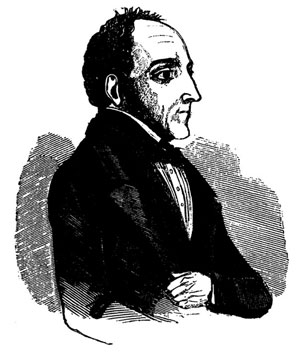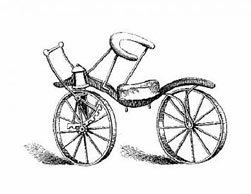I had never heard of this guy before. Imagine having the courage and vision to go vegan in the early 1800s!
Lewis Gompertz (1783/4–1861) appears on the scene in 1824, at the age of 40, as the author of a significant book promoting an early prototype of what we now call animal rights and veganism; and in the same year he was a co-founder of the world’s first Society for the Prevention of Cruelty to Animals (SPCA, later RSPCA).

His 1824 book 'Moral Inquiries: on the situation of man and of brutes' was quite unlike anything before it, and there was very little of a similar nature after it until Henry Salt’s ‘Animal Rights’ of 1892.
His first principle was a fundamental objection to killing or harming any animal, or any living being, for any purpose whatsoever including food, clothing, labour, research or entertainment.
Oddly however, he considered human health to benefit from eating meat, and if an animal died of natural or accidental causes, he had no objection (at least in principle) to eating it, and using its skin for clothing. We see something of that in modern ‘roadkill’ debates. But Gompertz argued that any benefits could still never justify deliberate killing. He also acknowledged his own imperfections, particularly in clothing, due to social pressures and the lack of suitable alternatives. And we have to keep in mind that many modern vegan foods (e.g. soy and margarine) were completely unknown in London in 1824.
Gompertz also devoted a complete chapter to the use of eggs and dairy products. He stated that cows’ milk was for calves, and it was wrong to take a calf away from its mother. However, if a calf died naturally or accidentally then he saw no objection to humans using the surplus milk (in 1824 most people still lived on the land, not in cities).
He had a particular concern for horses, easily the most abused animal in London at that time as they were the primary means of transport, hauling all manner of wheeled vehicles. He very directly equated their use to human slavery, and argued for their freedom. He considered whether some land in England should be set aside for their natural use, or whether they could be transported back to ‘Arabia’ where he imagined they could live in the wild. But he was realistic enough to know that this ‘abolitionist’ approach was not going to happen, and devoted much of his life to improving the welfare conditions of the animals.

Lewis Gompertz - Jewish 'vegan' and co-founder of the RSPCA in 1824
Lewis Gompertz (1783/4–1861) appears on the scene in 1824, at the age of 40, as the author of a significant book promoting an early prototype of what we now call animal rights and veganism; and in the same year he was a co-founder of the world’s first Society for the Prevention of Cruelty to Animals (SPCA, later RSPCA).

His 1824 book 'Moral Inquiries: on the situation of man and of brutes' was quite unlike anything before it, and there was very little of a similar nature after it until Henry Salt’s ‘Animal Rights’ of 1892.
His first principle was a fundamental objection to killing or harming any animal, or any living being, for any purpose whatsoever including food, clothing, labour, research or entertainment.
Oddly however, he considered human health to benefit from eating meat, and if an animal died of natural or accidental causes, he had no objection (at least in principle) to eating it, and using its skin for clothing. We see something of that in modern ‘roadkill’ debates. But Gompertz argued that any benefits could still never justify deliberate killing. He also acknowledged his own imperfections, particularly in clothing, due to social pressures and the lack of suitable alternatives. And we have to keep in mind that many modern vegan foods (e.g. soy and margarine) were completely unknown in London in 1824.
Gompertz also devoted a complete chapter to the use of eggs and dairy products. He stated that cows’ milk was for calves, and it was wrong to take a calf away from its mother. However, if a calf died naturally or accidentally then he saw no objection to humans using the surplus milk (in 1824 most people still lived on the land, not in cities).
He had a particular concern for horses, easily the most abused animal in London at that time as they were the primary means of transport, hauling all manner of wheeled vehicles. He very directly equated their use to human slavery, and argued for their freedom. He considered whether some land in England should be set aside for their natural use, or whether they could be transported back to ‘Arabia’ where he imagined they could live in the wild. But he was realistic enough to know that this ‘abolitionist’ approach was not going to happen, and devoted much of his life to improving the welfare conditions of the animals.

